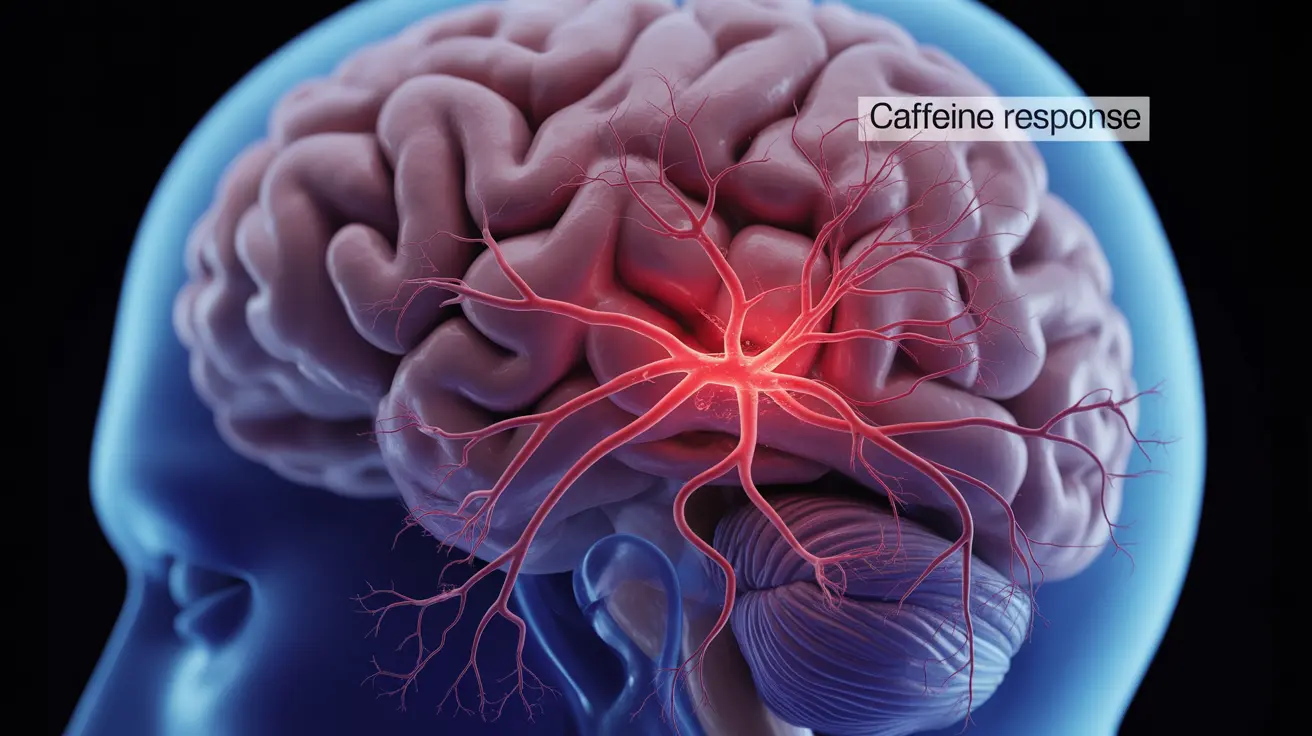Many people rely on their daily caffeine fix for an energy boost, but the relationship between caffeine and headaches is complex and often misunderstood. Whether you're a coffee enthusiast or an energy drink consumer, understanding how caffeine affects your head pain can help you make better choices about your consumption habits.
This comprehensive guide explores the connection between caffeine intake and headaches, including both how caffeine can trigger head pain and, paradoxically, how it's sometimes used to treat headaches. We'll also discuss practical strategies for managing your caffeine consumption to avoid unwanted side effects.
How Caffeine Affects Your Brain and Blood Vessels
Caffeine primarily affects your central nervous system by blocking adenosine receptors, which normally promote sleepiness. This interaction also impacts your blood vessels, causing them to constrict or dilate depending on various factors, including your regular caffeine consumption patterns and overall intake.
When you consume caffeine, it can initially cause blood vessels to constrict, which may help relieve certain types of headaches. However, as the effects wear off, these same blood vessels can dilate rapidly, potentially triggering a headache in some individuals.
Signs You're Getting Headaches from Excessive Caffeine
Recognizing caffeine-induced headaches is crucial for managing your consumption. Common symptoms include:
- Throbbing pain that develops several hours after consuming caffeine
- Pain that worsens with physical activity
- Sensitivity to light and sound
- Irritability and difficulty concentrating
- Nausea in some cases
These symptoms typically occur when you've consumed more caffeine than your body is accustomed to handling, or when you're experiencing withdrawal from regular caffeine use.
The Withdrawal Factor: When Cutting Back Hurts
Caffeine withdrawal headaches typically begin 12-24 hours after your last caffeine intake and can last for several days. These headaches occur because your brain has adapted to regular caffeine consumption, and suddenly removing it disrupts your body's normal functioning.
The severity of withdrawal symptoms often correlates with how much caffeine you regularly consume and how abruptly you stop or reduce your intake.
Safe Methods to Manage Caffeine Consumption
To avoid caffeine-related headaches, consider these evidence-based strategies:
- Gradually reduce caffeine intake over 2-3 weeks
- Keep track of all sources of caffeine, including coffee, tea, chocolate, and energy drinks
- Maintain consistent caffeine consumption times
- Stay hydrated with water throughout the day
- Get adequate sleep to reduce reliance on caffeine
Additional Lifestyle Changes to Prevent Caffeine Headaches
Beyond managing your caffeine intake, several lifestyle modifications can help prevent headaches:
- Maintain regular meal times to stabilize blood sugar
- Practice stress-reduction techniques like meditation or yoga
- Exercise regularly to improve circulation
- Establish consistent sleep patterns
- Consider alternative natural energy boosters like brief walks or power naps
Frequently Asked Questions
Can consuming too much caffeine cause headaches, and what symptoms should I look for?
Yes, excessive caffeine consumption can cause headaches, typically characterized by throbbing pain, sensitivity to light and sound, and increased discomfort with physical activity. These symptoms often develop several hours after consuming large amounts of caffeine.
How does caffeine withdrawal lead to headaches, and when do these headaches typically start?
Caffeine withdrawal headaches occur when regular caffeine consumers suddenly reduce or stop their intake. These headaches typically begin 12-24 hours after the last caffeine consumption and can persist for several days as the body adjusts to functioning without caffeine.
What is the safest way to reduce caffeine intake to avoid withdrawal headaches?
The safest approach is to gradually reduce caffeine intake over 2-3 weeks. This can involve mixing regular and decaf coffee, slowly reducing portion sizes, or stretching out the time between caffeinated beverages.
Can caffeine both relieve and trigger headaches, and how does it affect blood flow in the brain?
Yes, caffeine has a dual effect on headaches. It can relieve pain by constricting blood vessels and blocking pain-signaling chemicals. However, it can also trigger headaches when consumed in excess or during withdrawal due to changes in blood vessel dilation and brain chemistry.
What lifestyle changes can help prevent caffeine-related headaches besides cutting back on caffeine?
Key lifestyle changes include maintaining regular sleep patterns, staying well-hydrated, eating balanced meals at consistent times, managing stress through relaxation techniques, and getting regular exercise. These changes can help reduce dependency on caffeine and minimize headache occurrence.




